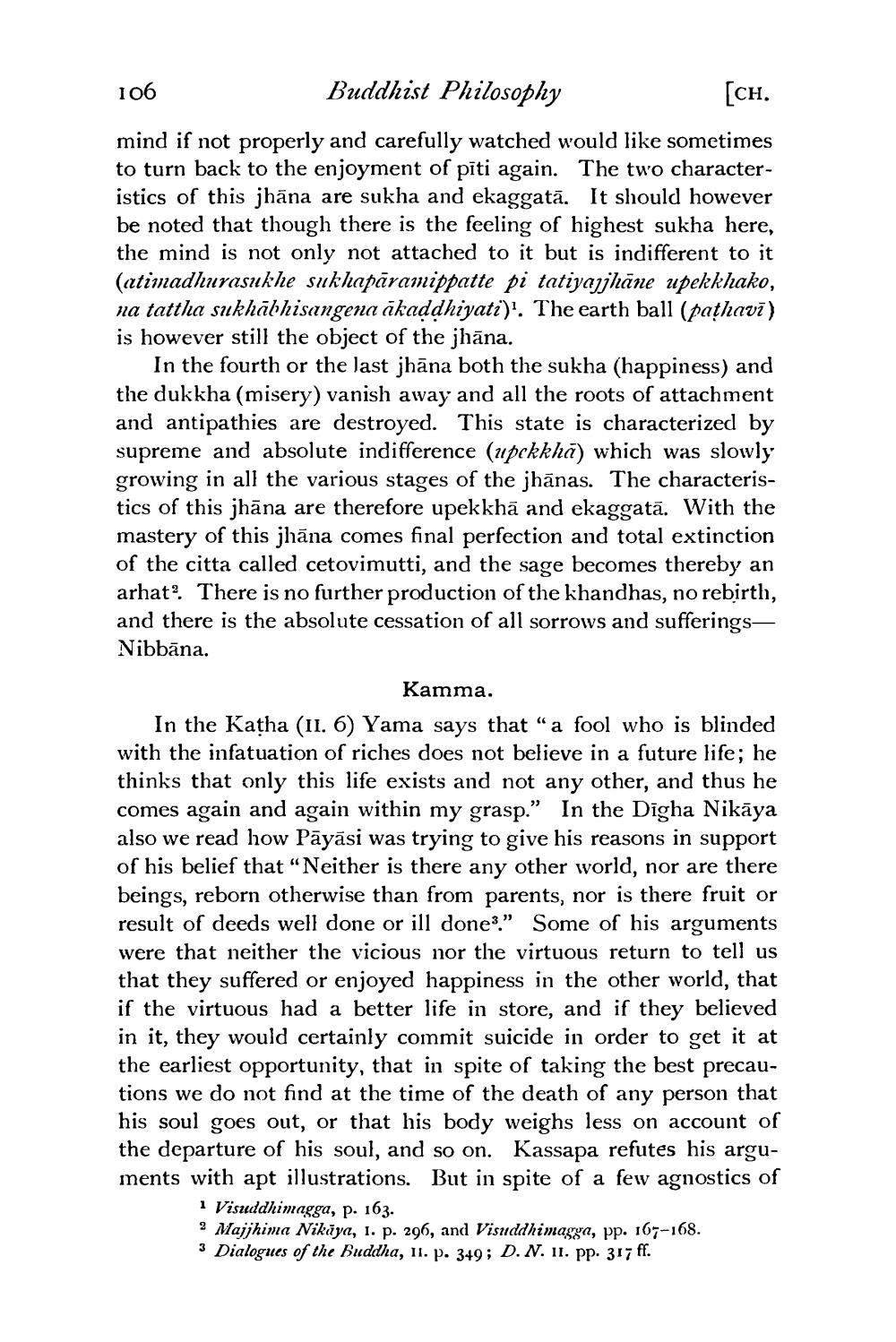________________
106
Buddhist Philosophy
[CH.
mind if not properly and carefully watched would like sometimes to turn back to the enjoyment of pīti again. The two characteristics of this jhāna are sukha and ekaggatā. It should however be noted that though there is the feeling of highest sukha here, the mind is not only not attached to it but is indifferent to it (atimadhurasukhe sukhaparamippatte pi tatiyajjhāne upekkhako, na tattha sukhābhisangena akaḍdhiyati)'. The earth ball (paṭhavi) is however still the object of the jhana.
In the fourth or the last jhana both the sukha (happiness) and the dukkha (misery) vanish away and all the roots of attachment and antipathies are destroyed. This state is characterized by supreme and absolute indifference (upekkha) which was slowly growing in all the various stages of the jhānas. The characteristics of this jhāna are therefore upekkhā and ekaggatā. With the mastery of this jhāna comes final perfection and total extinction of the citta called cetovimutti, and the sage becomes thereby an arhat. There is no further production of the khandhas, no rebirth, and there is the absolute cessation of all sorrows and sufferingsNibbāna.
Kamma.
In the Katha (II. 6) Yama says that "a fool who is blinded with the infatuation of riches does not believe in a future life; he thinks that only this life exists and not any other, and thus he comes again and again within my grasp." In the Digha Nikaya also we read how Payasi was trying to give his reasons in support of his belief that "Neither is there any other world, nor are there beings, reborn otherwise than from parents, nor is there fruit or result of deeds well done or ill done." Some of his arguments were that neither the vicious nor the virtuous return to tell us that they suffered or enjoyed happiness in the other world, that if the virtuous had a better life in store, and if they believed in it, they would certainly commit suicide in order to get it at the earliest opportunity, that in spite of taking the best precautions we do not find at the time of the death of any person that his soul goes out, or that his body weighs less on account of the departure of his soul, and so on. Kassapa refutes his arguments with apt illustrations. But in spite of a few agnostics of
1 Visuddhimagga, p. 163.
2 Majjhima Nikaya, I. p. 296, and Visuddhimagga, pp. 167-168.
3 Dialogues of the Buddha, 11. p. 349; D. N. 11. pp. 317 ff.




